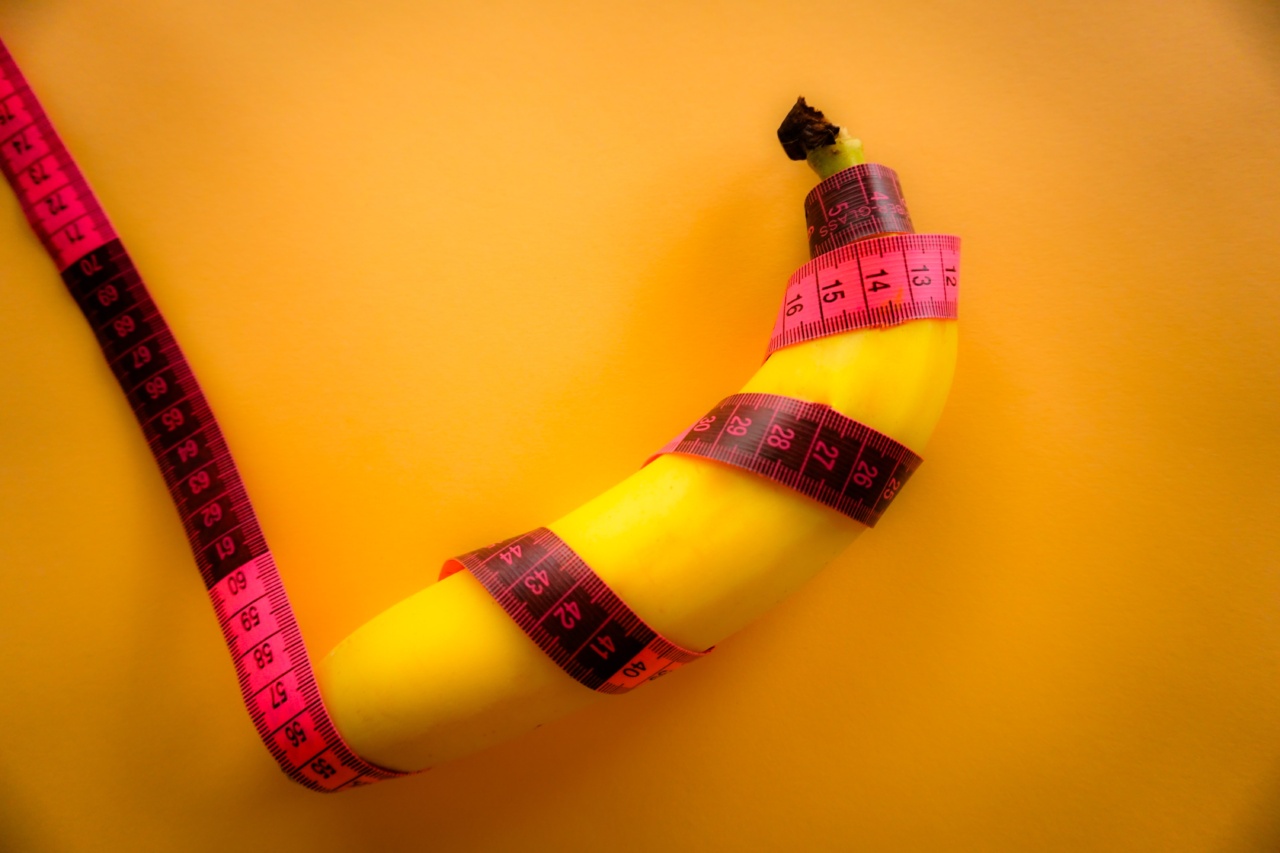Penis size is a topic of great interest and concern for many men. It is often associated with notions of masculinity, virility, and sexual prowess. As men age, they may wonder if their penis size will decrease, leading to anxiety and insecurity.
In this article, we will discuss whether penis size really does decrease with age and explore the factors that can influence it.
Understanding Penis Size
Before delving into the relationship between age and penis size, it is essential to clarify what is meant by “penis size.” Penis size refers to the dimensions of an erect or flaccid penis, typically measured in terms of length and girth.
The Myth of Penile Shrinkage
There is a common belief that penises inevitably shrink with age, but scientific evidence suggests otherwise.
A study published in the British Journal of Urology International interviewed over 12,000 men and found no significant relationship between age and penis size. The study concluded that age itself does not directly lead to a decrease in penis size.
Erectile Dysfunction and Age
While age may not directly impact penis size, it can affect various aspects of sexual health, particularly erectile function.
As men age, they may experience changes in their blood vessels and hormone levels, leading to decreased blood flow to the penis. This can result in difficulties achieving and maintaining an erection, commonly known as erectile dysfunction (ED).
Penis Size and Erectile Dysfunction
It is worth noting that erectile dysfunction and penis size are not directly linked. Men with ED may still have a perfectly normal penis size. On the other hand, men with a larger penis size may also experience erectile difficulties.
Therefore, it is crucial to distinguish between these two separate issues.
Other Factors Affecting Penis Size
Several factors can influence perceived penis size, regardless of age. These factors include:.
1. Body Weight
Excess body weight, particularly abdominal fat, can make the penis appear smaller. Losing weight can help enhance the visual aspect of penis size.
2. Hydration
Dehydration can affect blood flow, causing the penis to appear smaller. Staying properly hydrated is crucial for maintaining optimal blood circulation.
3. Scrotal Size
The size and tightness of the scrotum can impact the perception of penis size. A looser scrotum may make the penis appear larger, while a tighter scrotum may give the illusion of a smaller size.
4. Psychological Factors
Psychological factors, such as body image perception and self-confidence, can greatly influence how one perceives their own penis size. Negative thoughts or insecurity can make the penis appear smaller, even if it is of average size.
How to Maintain and Improve Sexual Health
While penis size may not significantly decrease with age, there are various strategies men can adopt to maintain and improve their sexual health:.
1. Regular Exercise
Engaging in regular physical activity, such as cardiovascular exercises and strength training, can improve blood circulation and overall sexual function.
2. Healthy Diet
A well-balanced diet rich in fruits, vegetables, whole grains, and lean proteins can support cardiovascular health and contribute to better sexual function.
3. Avoiding Smoking and Excessive Alcohol Consumption
Smoking and excessive alcohol consumption can have detrimental effects on erectile function. Quitting smoking and moderating alcohol intake can greatly benefit sexual health.
4. Managing Stress
Chronic stress can negatively impact sexual function. Adopting stress management techniques, such as meditation, exercise, and relaxation techniques, can help improve sexual health.
Conclusion
Contrary to popular belief, penis size does not significantly decrease with age. While various factors can influence one’s perception of penis size, age alone is not the determining factor.
Instead of focusing solely on penis size, men should prioritize overall sexual health and seek professional help if they experience concerns in this regard.





























